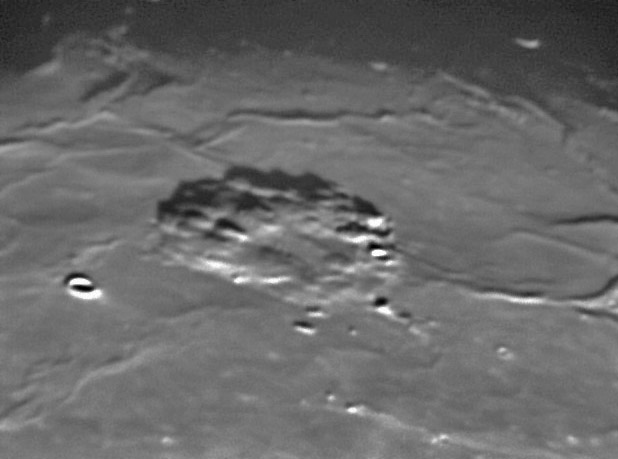
image by K.C. Pau
Rümker is the only dome with a crater’s name. Most domes, if they have an official designation at all, carry a Greek letter to indicate they are positive relief features - Arago alpha and beta are well known examples. Rümker has fooled selenographers, who in the 19th century thought it was a ruined crater. But as K.C.’s excellent image shows it is largely a bumpy mound, shaped like a fat croissant. Rümker appears to be a ring of slightly elevated terrain covered with a dozen or more dome-like bulges. Perhaps even the underlying topography is just a collection of earlier domes. Notice the mare ridge at the bottom right side of Rümker, which appears to continue at top center of Rümker. If this is the same ridge, then Rümker is younger than the surrounding mare surface. But the real question is why is Rümker such an odd formation? There are no other piles of domes on the Moon, and in fact they are rare on Earth. What the concentration means is that a lot of magma erupted from a single source. But what we don’t know is why that happened here but not elsewhere.
Technical Details:
250 mm f/6 Newtonian + 2.5X barlow + Phillips Toucam Pro.
Related Links:
Rükl plate 8
Yesterday, 3.2% of LPOD readers clicked on a sponsor ad - the 5th highest ever - Thanks!
Now you can support LPOD when you buy ANY book from Amazon thru LPOD!
COMMENTS?
Click on this icon File:PostIcon.jpg at the upper right to post a comment.



